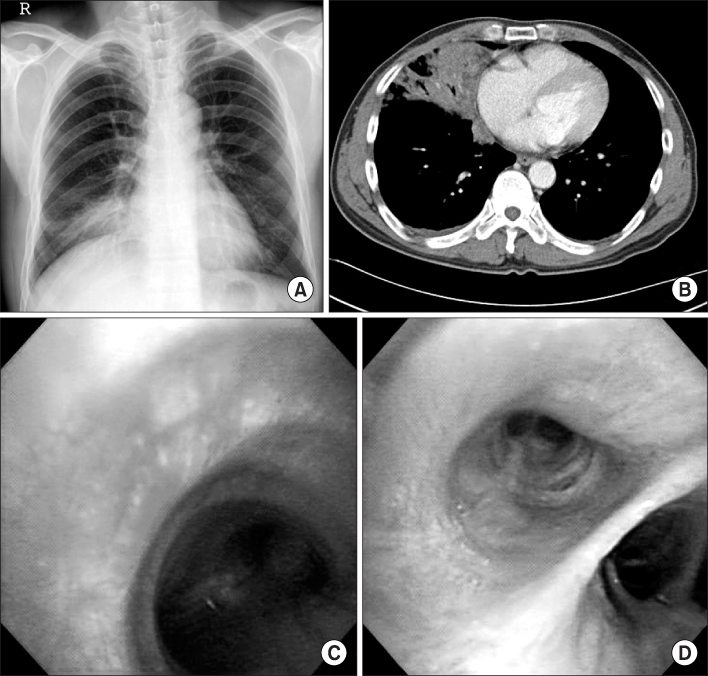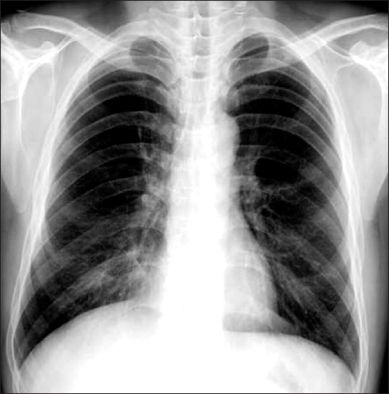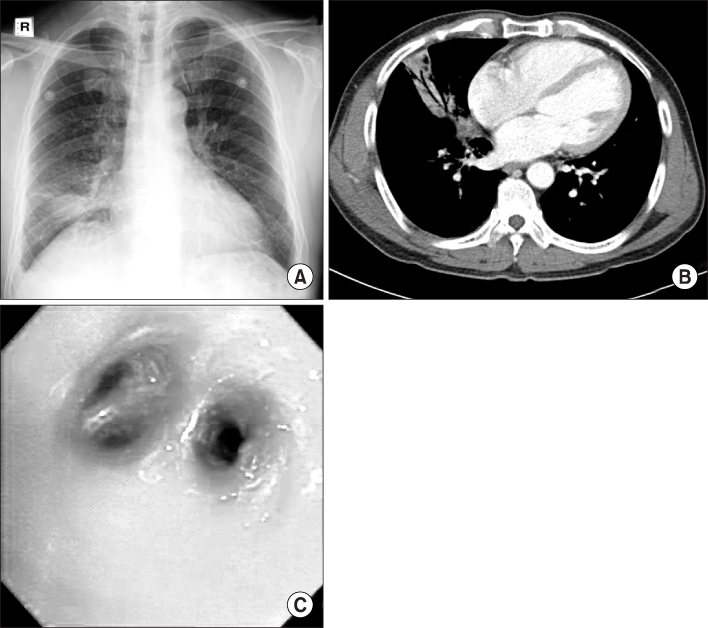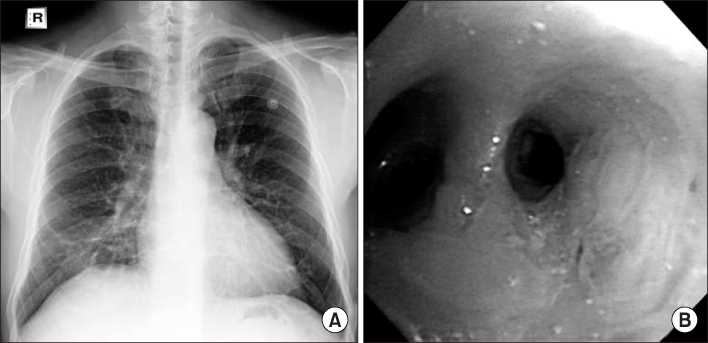Tuberc Respir Dis.
2009 Aug;67(2):148-153.
Two Cases of Chemical Pneumonitis Induced by Hydrocarbon Aspiration
- Affiliations
-
- 1Division of Pulmonary, Department of Internal Medicine, College of Medicine, Wonkwang University, Iksan, Korea. kshryj@wonkwang.ac.kr
Abstract
- Chemical pneumonitis induced by hydrocarbon aspiration is rare in Korea. Kerosene is a petroleum distillate with low viscosity and high volatility. We report two adult cases of chemical pneumonitis caused by the accidental aspiration of kerosene. They were treated successfully with antibiotics and systemic corticosteroids, and recovered without complications.
MeSH Terms
Figure
Reference
-
1. Kim KI, Kim CW, Lee MK, Lee KS, Park CK, Choi SJ, et al. Imaging of occupational lung disease. Radiographics. 2001. 21:1371–1391.2. Lee CY, Choi SW, Kim Y, Chung BC, Kim HJ, Ahn CM, et al. A case of chemical pneumonitis induced by ingestion of hydrocarbon. Tuberc Respir Dis. 2000. 49:639–643.3. Truemper E, Reyes de la Rocha S, Atkinson SD. Clinical characteristics, pathophysiology, and management of hydrocarbon ingestion: case report and review of the literature. Pediatr Emerg Care. 1987. 3:187–193.4. Baldachin BJ, Melmed RN. Clinical and therapeutic aspects of kerosene poisoning: a series of 200 cases. Br Med J. 1964. 2:28–30.5. Eade NR, Taussig LM, Marks MI. Hydrocarbon pneumonitis. Pedriatrics. 1974. 54:351–357.6. Wolfe BM, Brodeur AE, Shields JB. The role of gastrointestinal absorption of kerosene in producing pneumonitis in dogs. J Pediatr. 1970. 76:867–873.7. Gentina T, Tillie-Leblond I, Birolleau S, Saidi F, Saelens T, Boudoux L, et al. Fire-eater's lung: seventeen cases and a review of the literature. Medicine (Baltimore). 2001. 80:291–297.8. Limper AH, Prakash UB. Tracheobronchial foreign bodies in adults. Ann Intern Med. 1990. 112:604–609.9. Mo EK, Lee SJ, Son JW, Kim DG, Park MJ, Lee MG, et al. Four cases of kerosene pneumonitis. Korean J Med. 2000. 59:235–239.10. Bysani GK, Rucoba RJ, Noah ZL. Treatment of hydrocarbon pneumonitis: high frequency jet ventilation as an alternative to extracorporeal membrane oxygenation. Chest. 1994. 106:300–303.11. Marks M, Chicoine L, Legere G, Hillman E. Adrenocorticosteroid treatment of hydrocarbon pneumonia in children: a cooperative study. J Pediatr. 1972. 81:366–369.12. Sheridan R. Specific therapies for inhalation injury. Crit Care Med. 2002. 30:718–719.13. Lee KW, Lee JH. Two cases of hydrocarbon(gasoline) intoxication following ingestion and inhalation. J Korean Soc Emerg Med. 2001. 12:551–559.14. Kim JH, Lee KJ, Jung JY, Lee EJ, Jung KH, Kang EH, et al. Two cases of chemical pneumonitis caused by hydrogen sulfide. Tuberc Respir Dis. 2008. 64:210–214.





